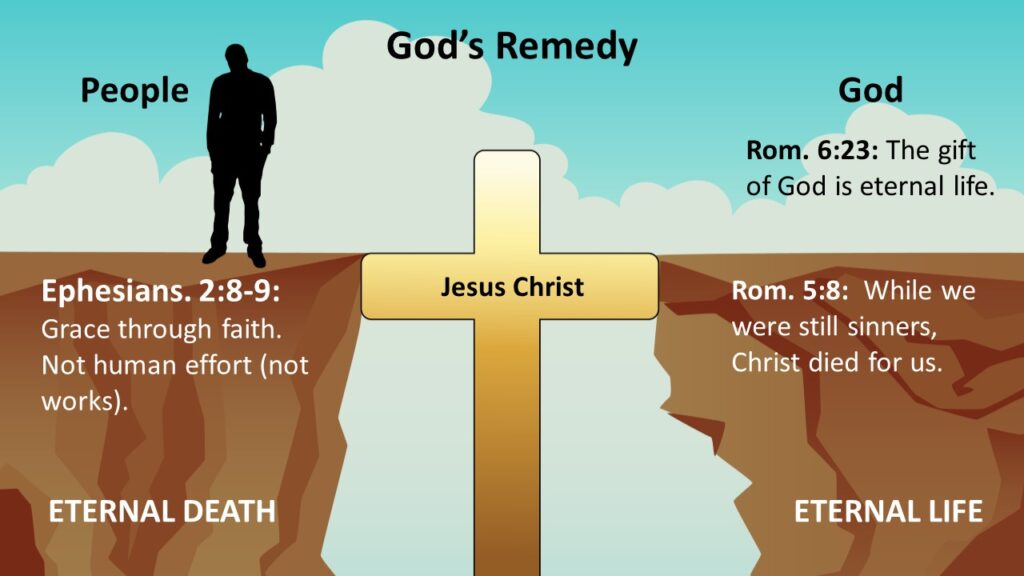
“Apologetics is the discipline that deals with a rational defense of the Christian faith.”1 Recently, an acquaintance of mine departed from the teachings of grace in favor of humanism, naturalism, and
atheism. Naturally, news of this radical change in viewpoint, direction, and action troubled me greatly. How could someone who understands salvation by grace through faith choose to depart from the faith in favor of atheism? I am, of course, aware that many of Paul’s converts departed the faith for various reasons. Consequently, my experience has caused me to realize that the study of apologetics has been overlooked in many grace churches.
“The word Apologetics does not mean to apologize, but to give a defense of what one believes to be true.”2 I Peter 3:15 states, “But sanctify the Lord God in your hearts: and be ready always to give an answer to every man that asketh you a reason of the hope that is in you with meekness and fear.” The Apostle Peter instructs his readers to “always be ready to give an answer.” The English phrase translated, “to give an answer” comes from the Greek word “apologia,” which means to give a reason or defense. Peter is telling his readers that they need to be able to defend their faith.
The Greek word “apologia” is rendered in English as “defense,” and is used eight times in the New Testament. Seven of the eight occurrences are either recorded by Luke in the book of Acts as something Paul said or penned by Paul in one of his epistles. Consider the following verses:
Acts 22:1–Men, brethren, and fathers, hear ye my defence which I make now unto you.
Acts 25:16–To whom I answered, It is not the manner of the Romans to deliver any man to die, before that he which is accused have the accusers face to face, and have license to answer for himself concerning the crime laid against him.
I Corinthians 9:3–Mine answer to them that do examine me is this,
II Corinthians 7:11–For behold this selfsame thing, that ye sorrowed after a godly sort, what carefulness it wrought in you, yea, what clearing of yourselves, yea, what indignation, yea, what fear, yea, what vehement desire, yea, what zeal, yea, what revenge! In all things ye have approved
yourselves to be clear in this matter.
Philippians 1:7–Even as it is meet for me to think this of you all, because I have you in my heart; inasmuch as both in my bonds, and in the defence and confirmation of the gospel, ye all are partakers of my grace.
Philippians 1:17–But the other of love, knowing that I am set for the defence of the gospel.
II Timothy 4:16–At my first answer no man stood with me, but all men forsook me: I pray God that it may not be laid to their charge.
Paul, the Apostle of the Gentiles for the current dispensation of Grace, on numerous occasions had to offer a defense of himself, his doctrine, and his gospel. If we are truly going to follow the Pauline pattern, we need to be prepared to follow suit.
The reality of the situation is this—while it is ultimately faith in the words on the pages of Scripture that save our eternal souls and secure our position in eternity, sometimes people need a bit more convincing. In Acts 17:18, Paul disputes with the Epicureans and Stoics and ultimately shares Christ with them. Paul’s effectiveness as an ambassador of Christ increased through his apparent knowledge of, and fluency in, Epicurean and Stoic philosophy. How many of us are prepared to do likewise? Militant Atheism, Postmodern philosophy, and the Woke Church movement are additional threats to our traditional foes of religion and the traditions of men. One cannot defeat what one does not understand. Modern culture has adopted a post-Christian framework that celebrates a spirituality that is accepting of all religious paths and viewpoints as equally valid, except for the exclusive claims of Paul’s gospel. Simply stated, a good, reasoned argument coupled with the power of the word of God solidifies our position.
Herein lies the goal of this article: to equip believers in Paul’s unique apostleship to follow his example in defending and confirming the gospel. Apologetics ought to be embraced by Mid-Acts Dispensationalists, for it is only our unique position brought to its logical conclusion that possesses the answers that both believers and nonbelievers alike are demanding. As our Lord says in Isaiah 1:18 “Come let us reason together…”
The Two-Fold Purpose of Apologetics
At the outset of this venture, prudence dictates that the readers of this comprehend the author’s viewpoint regarding the purpose of apologetics in the Dispensation of Grace. Practically speaking, Apologetics serves two primary functions. First, it aids and supports the gospel for those who may have logical or philosophical objections to the gospel of grace. Second, the discipline offers believers who have already placed faith in the shed blood of Jesus Christ as the only payment for their sins assurance that their faith is rational and not a blind leap into the dark.
Lest friend or foe misunderstand the author’s position, some explanation is warranted. As the saving mechanism of our faith, the gospel does not require any aid or support. Paul, the apostle of the Gentiles, is clear that the power of God unto salvation is not found in man’s wisdom but in the preaching of the cross. Please consider the following references:
Romans 1:16—For I am not ashamed of the gospel of Christ for it is the power of God unto salvation.
I Corinthians 1:16—For the preaching of the cross is to them that perish foolishness; but unto us which are saved it is the power of God.
When an individual by faith applies the blood of Christ to their own individual sin account, God erases their sin debt based on the merits of Christ’s finished work. Logic, philosophy, or apologetics play no part in this once-for-all transaction in terms of justifying the sinner. Faith is all that is required to receive the gift of eternal life. Simply stated, sinners are justified through a once-and-for-all transaction the moment they trust in and rely exclusively on Christ’s work on their behalf. Human effort, religious regulations, law keeping, or human viewpoint play no part in the eternal salvation of the lost.
So then, how does apologetics aid and support the gospel? In order to answer this question, consider the following classic example of man’s problem and God’s remedy. Many are familiar with the following diagram illustrating the hopelessness of man’s sinful condition and the futility of human performance to save one from sin’s penalty: death, hell, and eternal separation from God.

Apologetics has its first application for the individual who is pictured in the diagram above. This person is still in his/her natural state, separated from the life of God because of sin. The Scriptures teach that anyone who dies in this condition will spend eternity separated from the life of God. While the gospel of grace is simple, sometimes people have logical and philosophical objections that prevent them from exercising saving faith. As believers, it is not our job to judge the sincerity of the objections offered by the lost. Rather, we must provide an answer to those who find themselves in this position.
Herein lies the first goal of apologetics. A skillful defense of the gospel of grace can lead the sinner to the edge of the cliff. From this vantage point, the natural man can see that faith in the work of Christ is the logical next step in solving the problem of human sinfulness. This is what many evangelists have called the point of decision. Even the best logical and philosophical arguments sometimes do not result in the salvation of the lost because the power of God unto salvation is not found in our apologetic arguments. Ultimately, salvation is an act of the will, and it cannot be forced upon someone. Consequently, apologetics plays a vital role in walking the individual to the edge of the cliff where the decision is made whether or not to take the dare of faith.
The second application of apologetics is for the individual pictured in the diagram below. This person has already taken the leap of faith and chosen to accept the crosswork of Christ as the only payment for their sin. Despite being a recipient of God’s very righteousness through the process of justification, believers sometimes have doubts about the nature of their relationship with God. Satan’s attempts to shake the foundations of a believer’s faith are often unrelenting. This is especially true in our day, where the attacks of militant atheism, religious pluralism, relativism, and politically correct tolerance seem to threaten the very fabric of our faith.

For the believer, apologetics offers an opportunity to look back across the gulf and see that faith in Christ does make logical sense. While reason is not a prerequisite to faith, it does not stand against faith as some Christians have asserted. Faith and reason alike find their source in God and are intimately tied to one another. As believers, we do not have blind faith; rather, our faith rests on a foundation of facts. Therefore, our faith must be guided by reason. While our faith must be guided by reason, reason also affirms our faith. In short, “Christianity is not a mystical religion, such as many Eastern religions and their New Age clones. Neither is it a mythical religion with idols and man-made gods. Nor is Christianity a misinformed religion, such as the various cults. Rather, Christianity is a historic religion, and its truth-claims are grounded on objective, historical facts.”3
Endnotes
1) Norman L. Geisler. Baker Encyclopedia of Christian Apologetics. (Grand Rapids, MI: Baker Book House, 1999), 37.
2) Josh McDowell. The New Evidence That Demands a Verdict. (Nashville, TN: Thomas Nelson, 1999).
3) Dan Story. Defending Your Faith: How to Answer the Tough Questions. (Nashville, TN: Thomas Nelson, 1992), 17.
Pastor Bryan Ross
Grace Life Bible Church
Grand Rapids, MI
June 6, 2025
Resources For Further Study
The Logic Of Grace (Blog Article)
Come Let Us Reason Together: Learning To Love God With All Thy Mind (YouTube Series)
